Hummingbirds: The forgotten pollinator when it comes to pesticides
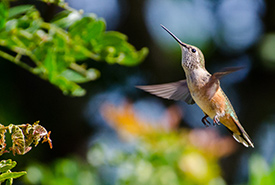
Female rufous hummingbird (Photo by Jennifer Kepler CC BY-NC)
When life is leaping forth in its freshest tender green and shrubs are casting their best wine-rich blooms of colour, there comes a humming. Not just from the song of spring rising in the world, but from wing beats — 52 to 62 per...
Monarch migration
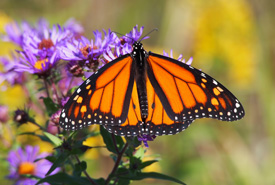
Monarch (Photo by NCC)
Fall is fast approaching. As the days grow shorter and temperatures drop, it’s time for monarchs to migrate south for the winter. These iconic bright-orange butterflies will soon be replaced by pumpkins and turning leaves. Monarchs spend...
Point counts at Wideview: 10,000 steps by 7 a.m.
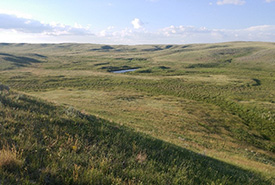
Wideview, SK (Photo by NCC)
3 a.m.: Why am I awake this early? The only other creatures awake right now are the birds. Oh, right. The birds are exactly why I’m awake this early. It’s time for point counts at the Nature Conservancy of Canada’s (NCC’s)...
Buzzing down the house: An update
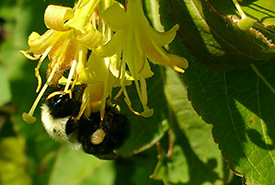
Bumble bee (Photo by Amanda Liczner)
This is an update to a post I wrote last year. The data has now been analyzed, and the results are ready for sharing. We commonly hear that bees are in decline and that we need to save them because they are important pollinators of crops and...
Native grassland is important habitat for grassland birds
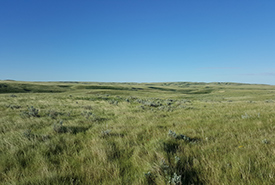
Native grassland (Photo by Sarah Ludlow/NCC staff)
Saying that native grassland is important habitat for grassland birds seems quite obvious. And you might think to yourself, “Of course grassland birds like grassland habitat; it’s right in the name!” The important point to note...
Wetland contamination and turtle health
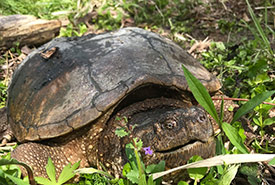
Snapping turtle (Photo by Pascale Bider)
Between oozing mud, mosquitoes the size of golf balls and strange-smelling water, wetlands may not seem to you or me like an appealing place to live. But for most of Ontario’s eight species of turtles, wetlands are an essential...
Restoration is super cool... literally!
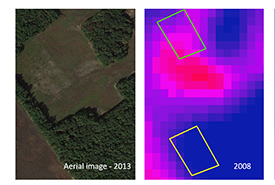
Left: An image of a restored field on an NCC property in 2013. Right: A thermal image of the same field taken in 2008. (Images by Google Earth and USGS Landsat 5)
Restoration of woodland begins with site preparation and seeding, but monitoring is needed after that to make sure the restoration stays on track for the next 40 plus years. This blog post explains the application of thermodynamic theory to the...
Three reasons why it’s important to study winter
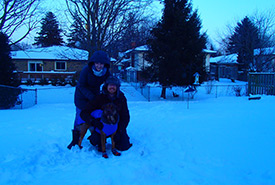
Me, my husband and dog bundled up during the polar vortex (Photo courtesy of Meghan Duell)
We tend to think of winter in temperate regions as cold, maybe snowy, maybe grey and with short daylight hours. Maybe you hate winter because you dislike feeling cold, having chapped skin, driving on icy roads and...insert weather problem here...
Antlers of the East: Tracking the decline of the Atlantic-Gaspésie caribou (part two)
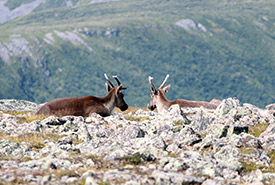
Woodland caribou at the summit of Mont Jacques-Cartier, tallest among the Chic Choc Mountains of Gaspésie National Park, QC. (Photo by Zack Metcalfe)
In part one of Antlers of the East, I discussed the decline of the Atlantic-Gaspésie caribou. Here is part two. Stand against extinction Since 2008, the caribou of Gaspésie National Park have been under the thoughtful study of...
In the depths of the Lac-à-la-Tortue bog
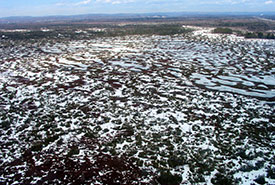
Lac-à-la tortue (Photo by NCC)
Peatlands are wetlands composed of plant residues accumulated over thousands of years. Although they are widespread in Quebec, many people don't know about them. However they provide us with many essential services, such as water filtration and...

